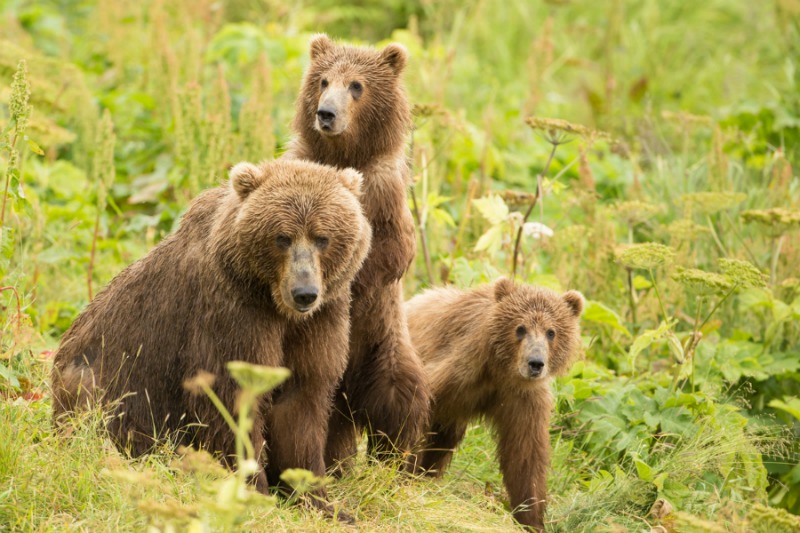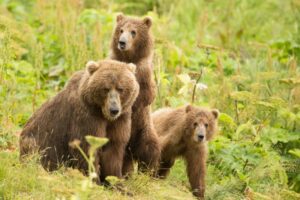
New Regulations Protect Predators on Wildlife Refuges
The US Fish and Wildlife Service adopted new sport hunting regulations to protect predators in Alaska’s National Wildlife Reserves on August 5, 2016. The new rule bans controversial practices promoted by the Alaska State Board of Game in its efforts to reduce the number of predators competing with sport hunters for moose and caribou. The now-banned practices include:
- brown bear baiting;
- snaring or trapping bears;
- hunting wolves and coyotes during the denning season; and
- shooting bears from an aircraft or on the same day of flying in a non-commercial aircraft. (This prohibition already applied to wolves and wolverines.)
This new rule closely mirrors the rule the National Park Service adopted last year that also protects predators. Like the Park Service, the Fish and Wildlife Service needed to step in to protect predators within Refuge boundaries from the State’s aggressive policies focused on killing the very iconic wildlife that make Alaska special.
Typically, both the Park Service and Fish and Wildlife Service allow the State Board of Game to manage sport hunting on Refuges. But, the State has increasingly sought to drastically reduce predator populations, even to the point of allowing hunters to take wolves when their pelts are of little to no value.
It is not surprising that the State Board of Game and Fish and Wildlife Service are at odds when it comes to the hunting of wolves and bears. The Board of Game is focused on providing moose and caribou for people to hunt, while Fish and Wildlife Service strives to protect natural diversity. That means protecting all species, not just moose and caribou. And while these two missions are not inherently contradictory, the Board of Game continues to rely on outdated and simplistic thinking that controlling predator populations will increase the availability of prey species for hunters.
Taken together, the Fish and Wildlife Service’s and the Park Service’s regulations protecting predators are a huge win for Alaska’s wildlife.
Links:
Read US Fish and Wildlife’s Regulation
Attorney: Katie Strong



